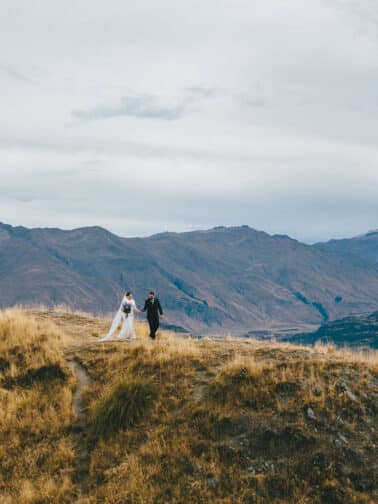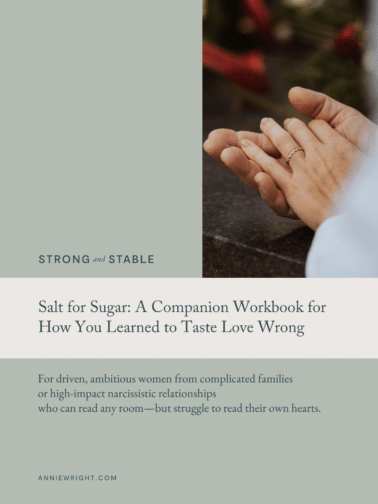What do “Baby Boom”, “Miss Rumphius”, and “The Country Bunny And The Little Gold Shoes” Have To Do With Your Life?…
…Very possibly nothing. But they have everything to do with my own life.
You see, I’ve been thinking lately about the power of stories and the profound influence and guidance the stories we passionately loved as children can have even in our adult lives.
I’ve particularly been curious about how, in times of confusion, not-knowing, deep questioning, and despair, if we reflect on and re-explore the stories we loved as kids, we might find diamonds in the mud — clues and messages and guidance for our souls that can support us when we’re having a tough time.
In today’s blog I want to share more with you about how those three stories – “Baby Boom”, “Miss Rumphius”, and “The Country Bunny With the Golden Shoes” – have played a profound role in shaping my life and how they continue to provide guidance when the way forward feels particularly foggy for me.
I also want to walk you through some inquiries to help you reflect on your beloved childhood stories and explore some of the messages and meaning these stories may have for you, even today…
The Power of Stories.
Stories are an entry point to the soul.
Stories – whether in film, book, audio or oral form – have been, since time immemorial, one of the primary ways we as humans have learned how to be. How to live. How we’ve received guidance about what life is. And how we can skillfully navigate it.
Stories have this incredible way of bypassing our rational, logical, ego-driven minds. And speaking straight to the soul.
Stories are, in my opinion, psyche medicine and life guidance of the highest order.
While it’s rare for communities and families to sit around campfires today and pass on oral instructional stories, we can see that this kind of storytelling/soul instruction persists around the veritable campfire of movie screens and in our collective Netflix queues.
For instance, I’m guessing you – like I – maybe once or twice have gone to the movies and, for a few hours, really identified with that superhero or that post-Apocalyptic badass heroine on screen, so much so that when we left the theatre we felt filled with some of the nerve and grit and steely determination of Katniss Everdeen, or Hermione Granger, or Tris Prior or [fill in the blank]. Am I right?
That experience of fully identifying with a character, of getting swept up in a story is powerful and also deeply nourishing and instructional for our souls — particularly for those of us who grew up in homes where they wasn’t exactly an abundance of loving or helpful guidance from the adults in the our lives.
“Stories are wonderful vehicles for images, feelings, atmosphere, and depth because they lead the readers or the audience to identify with and learn from the characters.” – Jean Shinola Bolen, MD
Childhood Touchstones.
While stories are powerful and important for us at all ages, it’s the stories we passionately loved as children that I think can be particularly helpful to explore when we’re feeling stuck, overwhelmed, and filled with despair in life.
What's Running Your Life?
The invisible patterns you can’t outwork…
Your LinkedIn profile tells one story. Your 3 AM thoughts tell another. If vacation makes you anxious, if praise feels hollow, if you’re planning your next move before finishing the current one—you’re not alone. And you’re *not* broken.
This quiz reveals the invisible patterns from childhood that keep you running. Why enough is never enough. Why success doesn’t equal satisfaction. Why rest feels like risk.
Five minutes to understand what’s really underneath that exhausting, constant drive.
Whether it was a book, a movie, a TV episode or series, or even a fairytale you learned about from a friend or teacher, they are, I believe, certain stories that just *stick* with us as kids. Stories that just seem to strongly impact us for no logical, rational reason.
These are the childhood stories we want to explore to support us when life feels particularly tough.
“Fairy tales are more than true – not because they tell us dragons exist, but because they tell us dragons can be beaten.” – Neil Gaiman
Lately, I’ve been reflecting on how, from ages 8 to 13, I was passionate about three stories — two books and one movie: “Miss Rumphius” by Barbara Cooney, “The Country Bunny and the Little Golden Shoes” by DuBose Heyward, and the movie Baby Boom starring Diane Keaton.
On the surface these stories had virtually nothing in common: a onetime globetrotting, now-partially disabled eccentric old woman who walked the Maine coast flinging about lupine seeds; a mother bunny of 18 who worked her (cotton) tail off to become one of the kingdom’s elite Easter Bunnies; and a Harvard/Yale MBA corporate “Tiger Lady” who becomes guardian to an orphaned niece and opts out of the NYC Rat Rat to move to the New England countryside and discovers she’s a whiz at making baby applesauce.
But there are key threads and lessons woven throughout these three stories that then – as now – touch my soul deeply and which provide guidance for me even today.
These stories showed me that:
- It is more than possible for a woman to do and achieve more than “only” being a mother;
- If she is very creative and persistent, a woman can craft a flourishing life on her own terms – irregardless of the opinions of others;
- Self-confidence and following intuition to create said life is key;
- When carving out a non-traditional life path, you may not always be understood, supported, or respected. Do it anyways.
As a child I passionately loved these stories and, despite the fact that I wasn’t seeing these lessons modeled very successfully by others in my real life, the stories told me that these things were possible and that one day they could be available to me, too.
Today, when life feels tough, I still turn back to these books and films for a kind of soul pick-me-up, to connect back to the messages they contain, like checking a proverbial compass of sorts as I journey through my life facing my own metaphorical dragons.
Finding Your Own Diamonds in the Mud.
Now it’s your turn. I want to invite you to reflect on the following inquiries to explore the childhood stories you passionately loved and to examine whether or not the messages they contained still have clues for you today.
- What books, films, fairy-tales or stories did you passionately attach to as a child (between ages 5-15)?
- What was the meaning of each of those stories for you? What are some of the lessons (whether implicit or explicit) that those stories taught you?
- Did you see yourself in one or more of the characters? What qualities and characteristics of those figures did you most admire? Can you see those qualities in yourself today?
- How did these stories shape or give hope to you as a kid? Are there any lessons in them that are still helpful to you even today?
- If you didn’t like the ending of any of those stories or movies, can you imagine rewriting it? How would you like to author the ending with the power of a do-over?
Onwards.
“Though fairy tales end after ten pages, our lives do not. We are multi-volume sets. In our lives, even though one episode amounts to a crash and burn, there is always another episode awaiting us and then another. There are always more opportunities to get it right, to fashion our lives in the ways we deserve to have them. Don’t waste your time hating a failure. Failure is a greater teacher than success.” ― Clarissa Pinkola Estés, PhD
I love this quote by Clarissa Pinkola Estes. When I read it, I feel empowered to author and re-author the story of my life as often as I need and want to.
And so, as we wrap up today, I invite you to consider what you would like to author in the next chapter or volume or episode of your life and also to consider how and what the clues and messages of your very favorite childhood stories might influence, guide, support, nourish and soothe you.
Finally, please share in the comments below the stories you most loved as a child and what some of the lessons and messages and “diamonds in the mud” they provided for you.
I can’t wait to read what you share!
Here’s to healing relational trauma and creating thriving lives on solid foundations.
Warmly,
Annie





